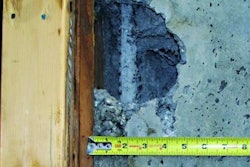Former Secretaries of Transportation Norman Mineta and Samuel Skinner are "discouraged and apprehensive" about the low funding levels suggested in a six-year, $230 billion surface-transportation reauthorization bill proposed last week by the House Transportation and Infrastructure Committee Chairman John Mica (R-FL). The magnitude of the numbers measures Mineta and Skinner measured their distress on a NationalJournal.com transportation blog this week.
The former transport chiefs released a policy report titled "Well Within Reach" late last year that was a collaborative effort among 80 of the nation's top transportation experts. Their consensus was that the U.S. would have to spend $85 to $118 billion annually to improve our transportation infrastructure. The House proposal would spend just $35 billion per year.
The House reauthorization bill also encouraged Mineta and Skinner by picking up some key recommendations from "Well Within Reach":
enhancing decision-making power of states, localities, and metropolitan-planning organizations;
focusing federal efforts on a federal purpose, leaving states more flexibility to prioritize projects;
reforming project planning, review and permitting to speed project delivery;
and encouraging public-private partnerships while also improving their oversight.
Mineta, Skinner and the experts consulted in writing "Well Within Reach" think these reforms put the country on the right transportation-policy track. That emphasis on surface-transportation reauthorization as a process, rather than an occasional opportunity to buy a lot of votes, cannot be overstated.
It is yet another hard reality for a construction industry slogging through hard times that normally bipartisan transportation spending has become so politically contentious. But financial strain will test the cooperation thresholds of much more cordial relationships than that between our country's dominant parties, just ask any marriage counselor.
In this case, the process of hashing out transportation reauthorization is just what we need to move toward carefully considered, efficient transport spending. One thing seems certain: whatever the final spending number turns out to be, there will be plenty of disappointed stakeholders. Today's economy is forcing unbelievably tough decisions on all of us. But if dire necessity helps codify cost efficiency as a priority in U.S. transportation reauthorization, this crisis will prove to have been a refining fire.




















